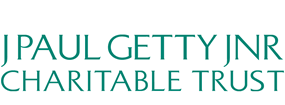
The J Paul Getty Jr Charitable Trust will be permanently closing to all online applications at 12.00pm on Friday 18th January 2013.
No unsolicited applications received after this time will be considered. It is the intention of the Trustees to wind down the Trust over the next three years.
Social welfare
The Trust supports a range of work to alleviate poverty and overcome disadvantage.
Please note that we do not accept unsolicited applications for medical care, disability, mental health, or general health and wellbeing programmes, as these areas are not currently priorities for the Trust. Counselling may sometimes be funded when it forms part of a broader programme of support, but we tend not to fund projects where counselling is the sole or main activity.
Improving Prospects
Offenders
The Trust funds work with offenders, both in and outside prison. Our main priority is to support initiatives that will break the cycle of re-offending e.g. by enabling offenders to develop better life and job skills, helping them to resettle in the community and allowing them to maintain positive relationships with their family and friends.
Refugees and Asylum Seekers
We also support projects assisting refugees and asylum-seekers. We are interested in initiatives which help these individuals to gain skills and participate more fully in their new community, as well as providing them with the specialist information and advice they need to access basic welfare services, such as benefits and housing.
Young People (14-19 years)
In this category we are most interested in projects that enable disadvantaged young people (14-19) to access constructive, enjoyable activities close to home. We favour projects that allow young people to develop their skills, self-confidence and aspirations e.g. through volunteering, work experience or a variety of creative activities. We are particularly interested in supporting work with young people in deprived areas where there is little other youth provision, and work which may enhance their prospects of employment.
We do not fund one-off events or residential trips, including outdoor adventure activities and challenge or fundraising events, nor do we fund work with young children.
Repairing Lives
Homelessness
We are interested in projects that improve the long-term futures of adults and young people who are homeless, or at risk of homelessness. We tend to favour projects which work directly with vulnerable people to prevent them becoming homeless or provide them with the advice and skills they need to resettle more permanently.
Given our focus on long-term support, we do not generally fund short-term 'fixes' such as providing hot meals, food parcels and home starter packs, although we certainly recognise the huge value and comfort that these services can bring.
Substance Misuse
In this category we are looking to support well-researched and evidence-led interventions that support people affected by drug and alcohol misuse, and enable them to take positive steps towards a more stable lifestyle. We will also consider funding innovative work to tackle drug and alcohol misuse, both at the project level working face-to-face with clients, but also at the policy level if there is clear potential for impact. In all cases we will look for proposals where learning and evaluation are an integral part of the development process.
Repairing Communities
Integration of Minority Groups
We are also interested in projects which help members of different social or ethnic minority groups to become better integrated with their local community, and enable them to gain access to new opportunities (such as training, volunteering and employment).